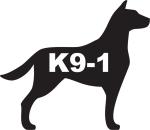In three experiments a total of 100 hungry rats were trained to run an alley for food reward and then given electric shocks at the goal to induce an approach-avoidance conflict. These experiments yielded the following results and conclusions:
1. During all but the first one or two trials of an extended test series with strong electric shocks at the goal, Ss which previously had been habituated to a gradually increasing series of shocks at the goal performed markedly better than those suddenly exposed to the test shocks for the first time. Under the conditions of these experiments we were able to teach rats considerable resistance to the stress of quite strong electric shocks at the goal.
2. A similar gradually increasing series of shocks given outside of the rewarded conflict situation produced little, if any, effect; Ss receiving this treatment were similar to the nonshock controls and reliably poorer than those habituated to the shocks in the rewarded training situation. Apparently, mere exposure to tough treatment will not necessarily improve resistance to stress in a different criterion situation.
3. Contrary to original expectation, additional rewarded training trials given to Ss which had reached the asymptote of speed reduced, rather than increased, the resistance of their running habit to disruption by shocks at the goal. Although widely advocated, mere overtraining may not always be helpful preparation for subsequent stress.
- Home
- Knowledge Base
- Scientific Studies Relevant to Dog Training
- Punishment
- Learning Resistance to Pain and Fear: Effects of Overlearning, Exposure, and Rewarded Exposure in Context, Miller
Learning Resistance to Pain and Fear: Effects of Overlearning, Exposure, and Rewarded Exposure in Context, Miller
Article Attachments
Related Articles
- Clinical Signs Caused by the use of Electric Training Collars on Dogs in Everyday Life Situations
- Rethinking Positive and Negative Reinforcement in Dog Training: Jack Michael’s Argument for Simplified Terminology (1975)
- Comparison of the Efficacy and Welfare of Different Training Methods in Stopping Chasing Behavior in Dogs, Johnson, A.C., & Wynne, C.D.L. (2024)
- Negative Effects of Positive Reinforcement, Michael Perone 2003
- Reviving Tortora’s Technique: How Foundation Style Dog Training Solves Old Criticisms
- Discriminative Properties of Punishment by William C. Holz and Nathan H. Azrin


Responses